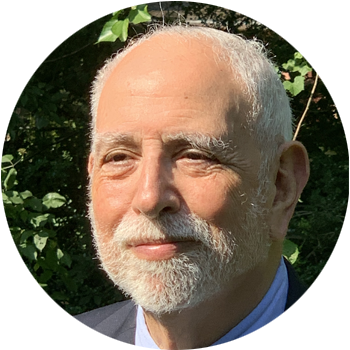1 Hour | 1 CE
This on-demand professional training program on Overview: Traumatic Brain Injury and the Law is presented by Michael L. Perlin, JD, and Heather Ellis Cucolo, JD in partnership with Mental Disability Law and Policy Associates (MDLPA).
Individuals with traumatic brain injuries (TBI) have a great risk of becoming justice-involved. Research has established that persons accused of criminal behavior are at a high risk of having traumatic brain injuries that predate the offense with which they are charged. In such cases, there often is no discussion of diversion opportunities or a need for comprehensive evaluation and treatment. Often, expert witnesses assigned to evaluate such individuals have no experience dealing with this specific population.
Additionally, attorneys assigned to represent this cohort may not have encountered individuals with TBI before and may not be familiar with behavioral manifestations that could be relevant as a defense or as mitigation in individual cases.
A turn to the principles of therapeutic jurisprudence – focusing on dignity, voice, validation, and voluntariness -- best offers lawyers (and judicial officers) an opportunity to remediate the full range of underlying issues that arise in cases involving, variously, quality of counsel, incompetency, insanity, death penalty, jury attitudes, perspectives from the bench, probation, and correctional issues. Why therapeutic must be taken seriously as a means of remediating the current untenable situation is discussed.

Intended Audience
This on-demand professional training program is intended for mental health and other allied professionals

Experience Level
This on-demand professional training program is appropriate for beginner, intermediate, and advanced level clinicians.

CE / CPD Credit
APA, ASWB, CPA, NBCC Click here for state and other regional board approvals.
Learning Objectives
Upon completion of this program you will be able to:

Describe the significance of expert testimony in cases involving defendants with TBI and recognize why adequacy-of-counsel is the crucial “hidden” issue in many cases

Describe ways that TBI influences legal decision-making in the criminal justice process

Describe the relationship between traumatic brain injury and critical stages of the criminal trial process (including the incompetency status and the insanity defense)

Describe how to apply case law that has developed in this area to the key related questions in death penalty litigation (mitigation, future dangerousness, competency to be executed)

Develop a Specialty Area of Practice
Transforming mental health professionals into experts
Expert Instructors
Professional training developed and delivered by the field's leading experts

CE Credit
Earn CE credit for meaningful professional training that will elevate your practice
Convenience & Flexibility
Learn at your own pace, from wherever you might be!
Program Partner
Mental Disability Law and Policy Associates (MDLPA)
We are proud to partner with Mental Disability Law and Policy Associates, LLC for this training. MDLPA is a boutique educational training company that offers specialized mental disability law consulting, the creation or enhancement of distance learning programs, in-house or online courses, and day or weekend training seminars to reputable organizations, educational institutions, professional groups, and advocacy groups focused on providing advanced knowledge and skills to persons working with marginalized populations.

CE Sponsorship Information
Palo Alto University, Continuing and Professional Studies (CONCEPT) is approved by the American Psychological Association to sponsor continuing education for psychologists. Palo Alto University, Continuing and Professional Studies (CONCEPT) maintains responsibility for this program and its content. Palo Alto University, Continuing and Professional Studies (CONCEPT) is approved by the Canadian Psychological Association to offer continuing education for psychologists. Palo Alto University, Continuing and Professional Studies (CONCEPT), SW CPE is recognized by the New York State Education Department’s State Board for Social Work as an approved provider of continuing education for licensed social workers #SW-0356 and the New York State Education Department’s State Board for Mental Health Practitioners as an approved provider of continuing education for licensed mental health counselors. #MHC-0073. Palo Alto University, Continuing and Professional Studies (CONCEPT) has been approved by NBCC as an Approved Continuing Education Provider, ACEP No. 6811. Programs that do not qualify for NBCC credit are clearly identified. CONCEPT Professional Training, #1480, is approved to offer social work continuing education by the Association of Social Work Boards (ASWB) Approved Continuing Education (ACE) program. Organizations, not individual courses, are approved as ACE providers. State and provincial regulatory boards have the final authority to determine whether an individual course may be accepted for continuing education credit. CONCEPT Professional Training maintains responsibility for this course. ACE provider approval period: 11/22/23-11/22/26. Social workers completing this course receive (clinical or social work ethics) continuing education credits.


